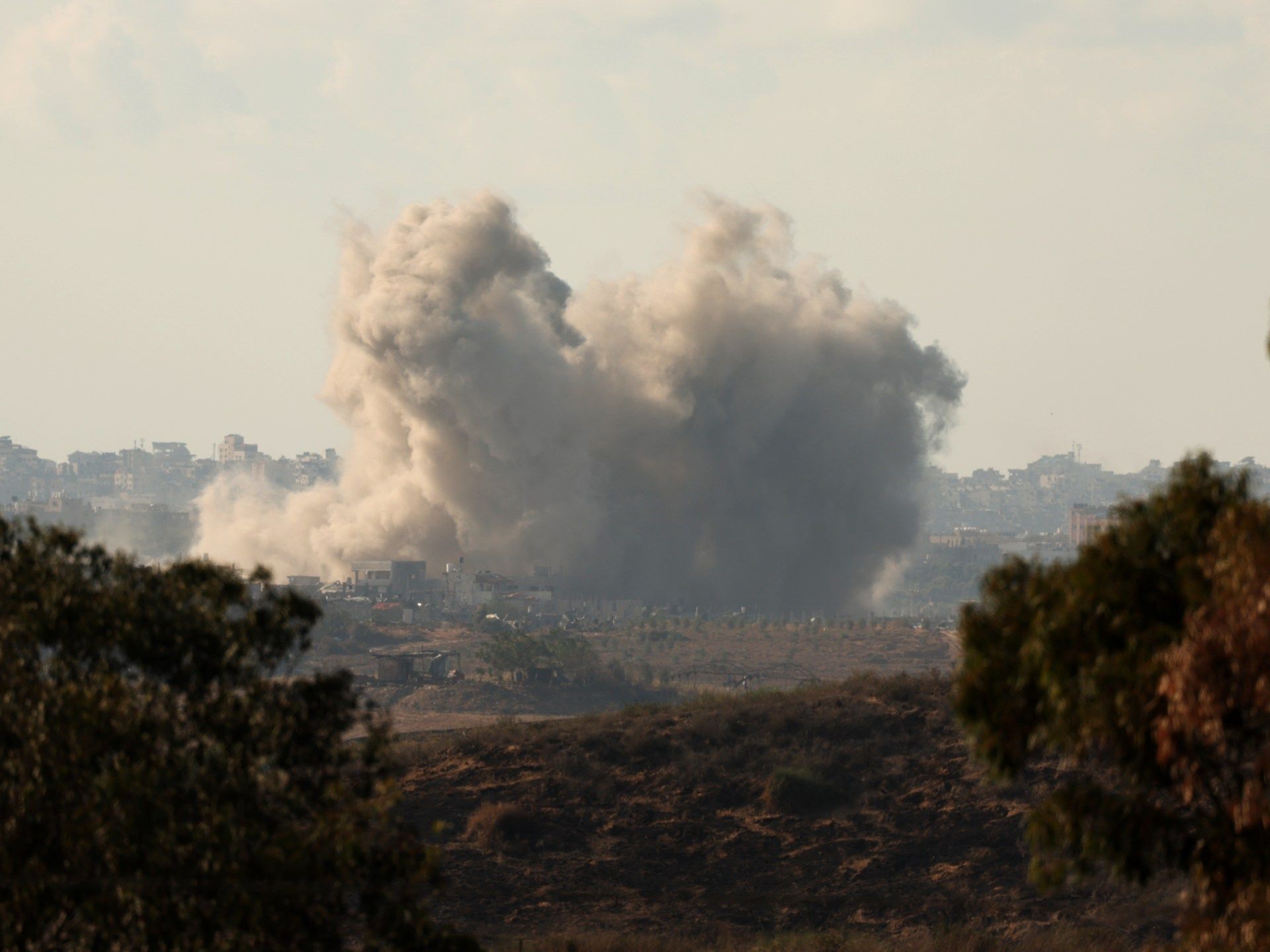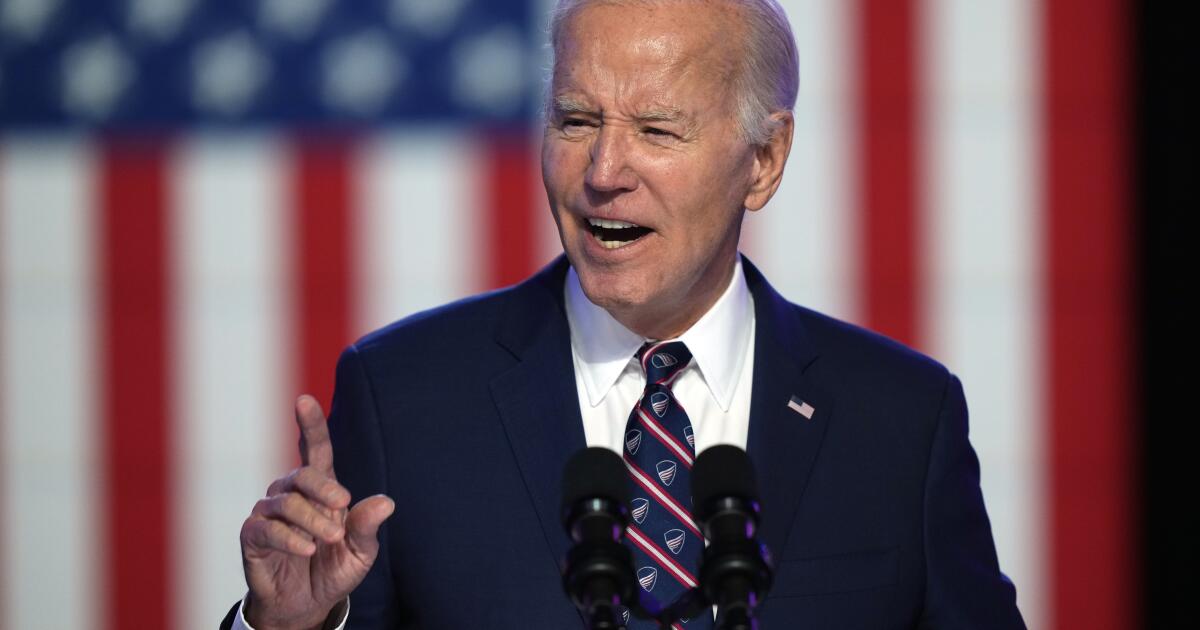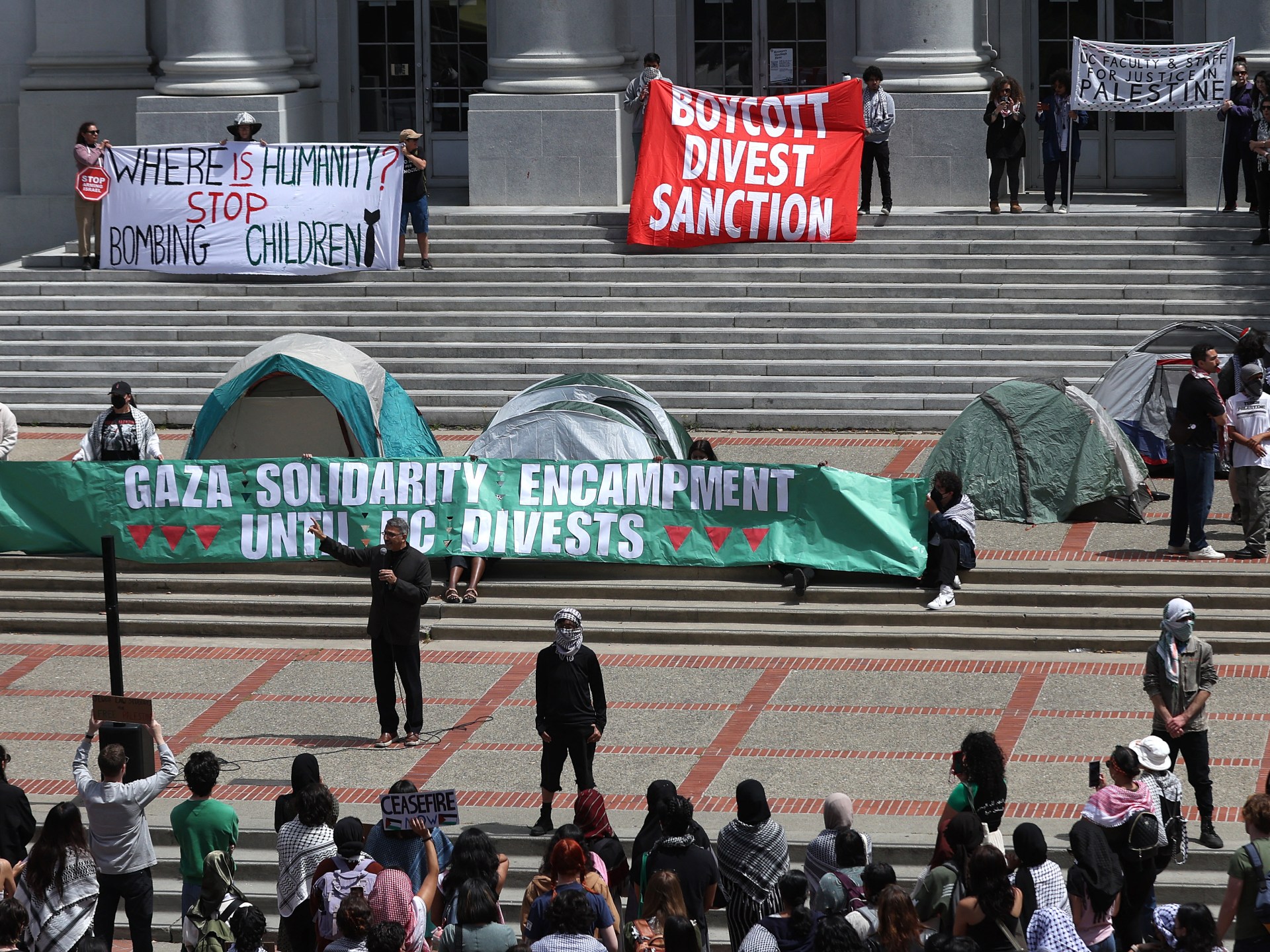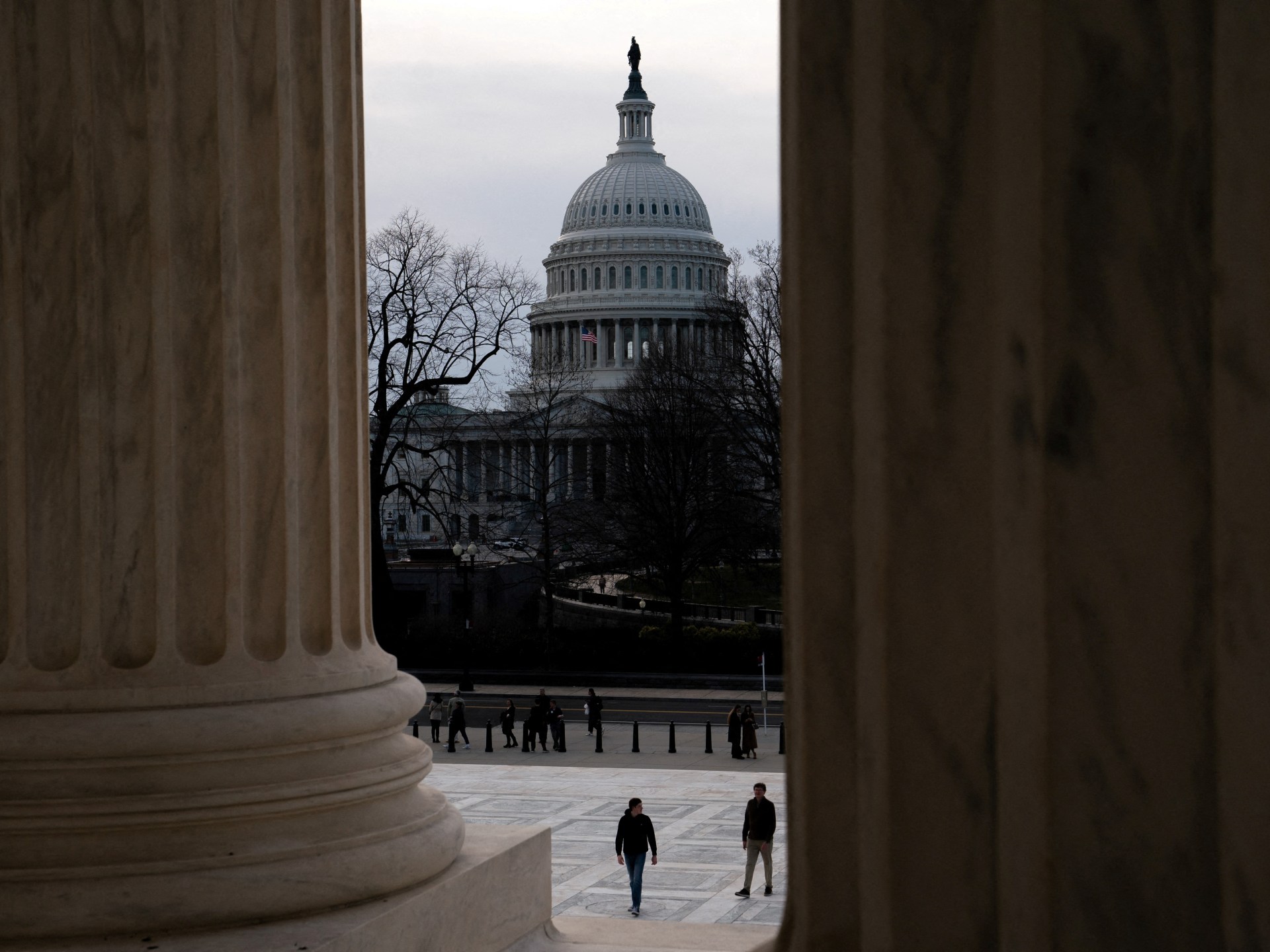As lawmakers across much of the West debate the extent to which Israel may be hindering the passage of vital aid to Gaza, the arms exports that underpin much of Israel's war against the besieged enclave continue to flow.
Since the war began, the volume of weapons entering Israel has increased as huge volumes of munitions are used to raze areas of Gaza, as well as kill, maim and displace its civilian population.
“On the one hand, we have this serious humanitarian need; On the other hand, we have this continuous supply of weapons to the country of Israel. [which is] creating that need,” said Akshaya Kumar, crisis advocacy director at Human Rights Watch (HRW).
International law
When it comes to arming another country, international law has rules and conventions to control who arms whom and what the weapons are used for.
Under the 1948 Convention on the Prevention and Punishment of the Crime of Genocide – which the International Court of Justice (ICJ) ruled in January could be in force in Gaza – states are legally obliged to prevent genocide, war crimes and crimes against humanity.
The United States refused to sign the convention until 1988.
Under the terms of the internationally binding Arms Trade Treaty – of which the United States is not a signatory – a country is prohibited from exporting weapons to any state it suspects may use them for “genocide, crimes against humanity…targeted attacks against property.” civilians or civilians.” protected as such.”
More than 31,000 Palestinians have died so far due to Israel's war in Gaza, mostly women and children, according to the Palestinian Health Ministry in Gaza, and some 73,000 have been injured. Health facilities, also under attack and siege, stopped being able to care for the wounded and dying months ago.
The enclave is on the brink of a humanitarian catastrophe. The head of diplomacy of the European Union, Josep Borrell, told the United Nations Security Council on Wednesday that Israel is using hunger as a weapon of war and creating a disaster by preventing the entry of aid.
Israel has also shot at people who gather to get the little aid allowed.
Although “Western states have recently done everything they can to get Israel to recognize its role in creating the suffering we are seeing in Gaza,” said HRW's Kumar, “we are not seeing any corresponding reduction in the flow of weapons from states like United States, Germany and beyond.”
Israel's major arms suppliers have focused on bringing aid to Gaza to reach Palestinians who are being attacked with many of the weapons they sold to Israel.
US President Joe Biden used his State of the Union address this year to announce the creation of a maritime corridor through which he claims it would be possible to bypass Israel and deliver aid to Gaza.
The reality on the ground
While some countries have suspended arms exports to Israel in light of its war on Gaza, some major suppliers remain.
The annual U.S. contribution of about $3.8 billion to Israel's military budget has continued, in addition to another $14 billion for Israel that the U.S. approved in February, ostensibly to prepare Israel for a “multi-front war.” ” – which many read as the opening of another front against the armed group Hezbollah in Lebanon.
According to the Stockholm Peace Institute, the United States provides 69 percent of Israel's arms imports, but recent confidential reports to the US Congress, reported by the Washington Post, suggest this may not be the full picture.
A loophole in the US Arms Export Control Act, which governs the export and end use of weapons shipped from the US, means that only packages of a certain value need congressional oversight, which which means that “packaged packages” below that value slip through regularly. .
So far, it was reported, around 100 arms shipments have been made without any public record, causing an uproar among civil society groups. “With arms sales and transfers below the threshold, we have little idea what munitions are being shipped – it's a black hole,” said Ari Tolany, director of the Security Assistance Monitor at the US-based Center for International Policy.
“Likewise, while the Israeli government claims it can assure Biden that these weapons are used in accordance with IHL [international humanitarian law]“The evidence from Gaza shows that is not the case.”
The United States maintains that it is acting within the provisions of the law.
Germany's arms exports to Israel have also increased: Berlin shipped weapons worth about $350 million, a tenfold increase over 2022 exports, most of which were approved after the Hamas attack on Israel. .
A UN report in February mentioned that other countries, including Australia, Canada, France and the United Kingdom, were maintaining their supplies.
In response to a question from Al Jazeera about the responsibility that comes with arming Israel while it ravages Gaza, a US State Department spokesperson wrote that “there has been no determination that Israel has committed genocide, not even at the ICJ.” .
In recent weeks, the UK and others are understood to have taken a similar position on the well-reported and growing humanitarian crisis in Gaza, keeping things as usual and expressing concern that the weapons they continue to supply could be used in an assault. to Rafah, where 1.4 million civilians are taking refuge.
Pushing back
However, while many Western countries continue to supply weapons to Israel, other former exporters appear aware of the legal dangers of granting arms licenses to a state that, according to the ICJ, may be committing genocide.
In addition to the Belgian Labor Party's condemnation of the Antwerp police for its decision to import riot weapons from Israel, there are broader and long-standing bans on the sale of weapons to Israel.
Shortly after the assault on Gaza began in October, Italy and Spain stopped arms shipments to Israel, although the latter continues to provide ammunition for “show.” Belgium's Walloon regional government, as well as the Japanese corporation Itochu, have also announced that they will suspend arms exports.
In February, a judge in the Netherlands upheld a ruling blocking the export of F-35 parts to Israel, saying: “It is undeniable that there is a clear risk that exported F-35 parts will be used in serious violations of the International human right. “
The UN has already warned about the legal dangers of exporting arms to Israel in its expert report, unambiguously titled: Arms Exports to Israel Must Stop Immediately.
The UK is facing legal pressure to change its position on arms exports to Israel, while in the US, the NGO Center for Constitutional Rights (CCR) is appealing its case against the president, secretary of state and the secretary of defense for the continuation of the export. of weapons to a State potentially involved in genocide.
“The initial Court (in Oakland, California) ruled that the supply of weapons to Israel was ultimately a 'political issue,'” Astha Sharma Pokharel, a CCR lawyer, told Al Jazeera.
“However, although the judge admitted that the area was outside his jurisdiction, he asked the executive to reconsider its 'tireless support' for Israel's attacks against the Palestinians, which is incredibly unusual.”
Documented abuses
That Israel may have used Western-provided weapons to kill and maim more than 100,000 people, as well as contributing to the plight of many more, is a growing conclusion in reports from observers, aid organizations and analysts.
In the first weeks of January, the facilities of the International Rescue Committee and the NGO Medical Aid for Palestine in one of the “safe zones” designated by the Israeli army in Gaza were attacked by an Israeli plane.
Subsequent investigations revealed that the attack involved a “smart bomb” fired from an F-16 fighter jet, both manufactured in the United States, with parts for the latter coming from the United Kingdom.
A statement from the two organizations this week said their attempts to understand what happened in January prompted six different versions of events from the Israeli military and no commitment from the US and UK that they were holding Israel responsible for the attack. use of their weapons in violation. of the Arms Trade Treaty, ratified by the United Kingdom in 2014.
Previous reports have documented Israeli abuse of humanitarian protection language to crowd people into smaller and smaller supposedly “safe” areas and then launch attacks against those same people.
The war in Gaza shows no signs of abating.
Currently, Israel is talking about creating “humanitarian islands” in central Gaza before a ground attack on Rafah that it has been threatening for weeks.
Meanwhile, millions of people wait, taking refuge in the city and throughout Gaza.












